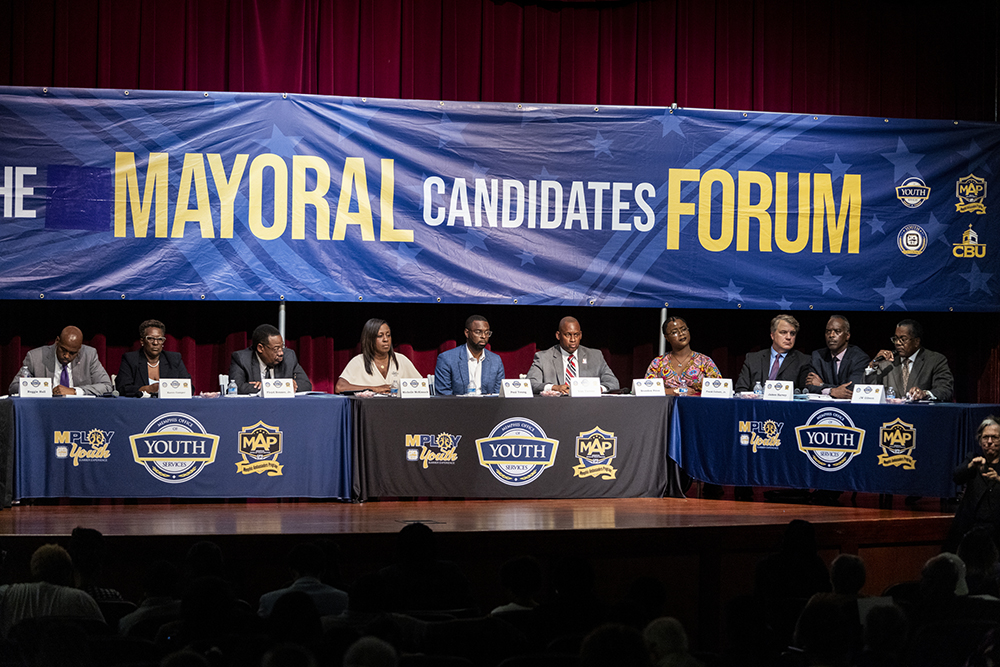As we approach one of the most momentous mayoral elections in Memphis’ history, MLK50: Justice Through Journalism and the Memphis Flyer have partnered on a unique experiment. With public safety on the minds of the voters, we polled our readers to find out what questions they would ask the mayoral candidates, if they had a chance.
We received more than 130 responses, which our editorial teams boiled down into a set of common questions. Then, we chose the four leading candidates, based on a combination of polling and fundraising data.
Below are some highlights from Floyd Bonner, Willie Herenton, Van Turner, and Paul Young’s responses to your questions.
If you would like to see the candidates’ complete answers, the expanded interviews, edited for length and clarity, can be found on both memphisflyer.com and MLK50.com.
The killing of Tyre Nichols at the hands of Memphis police officers damaged the community’s trust in police. What steps would you take to rebuild that trust?
BONNER: It’s about being out in the community, talking with the public, getting them to understand what happened, how it happened, and how we can work collectively to keep it from happening again.
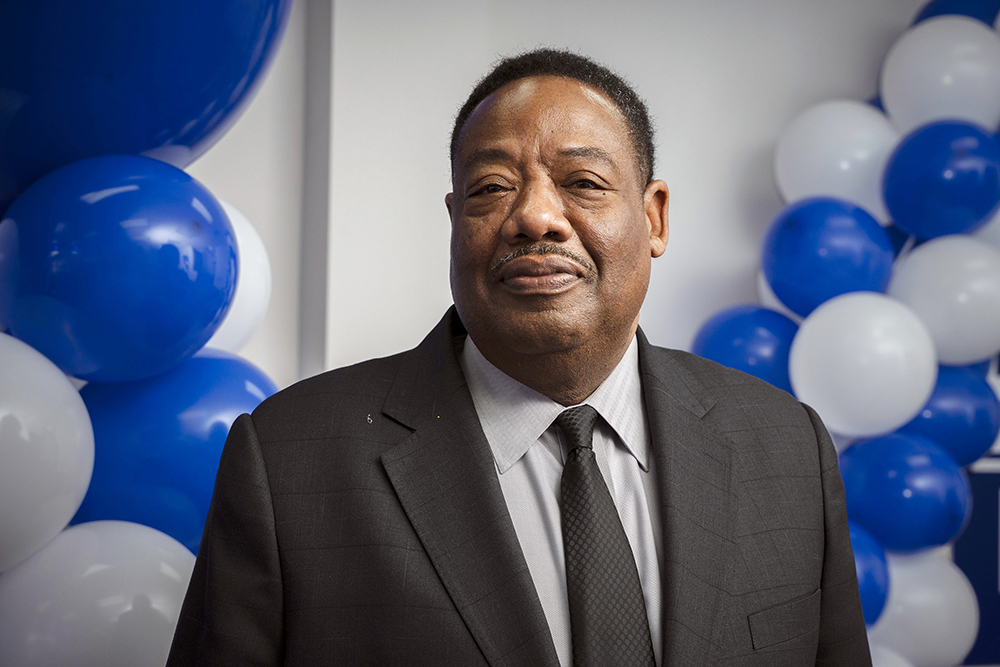
HERENTON: I’m going to bring back Blue CRUSH. … You’ve got to have specialized police units, but they’ve got to be well-trained. They’ve got to be appropriately selected. And you gotta have accountability. … What happened in the Tyre Nichols situation? They had a group of officers that didn’t have extensive tenure as police officers, and they lacked supervision. I would have an organizational structure with a chain of command providing appropriate oversight.
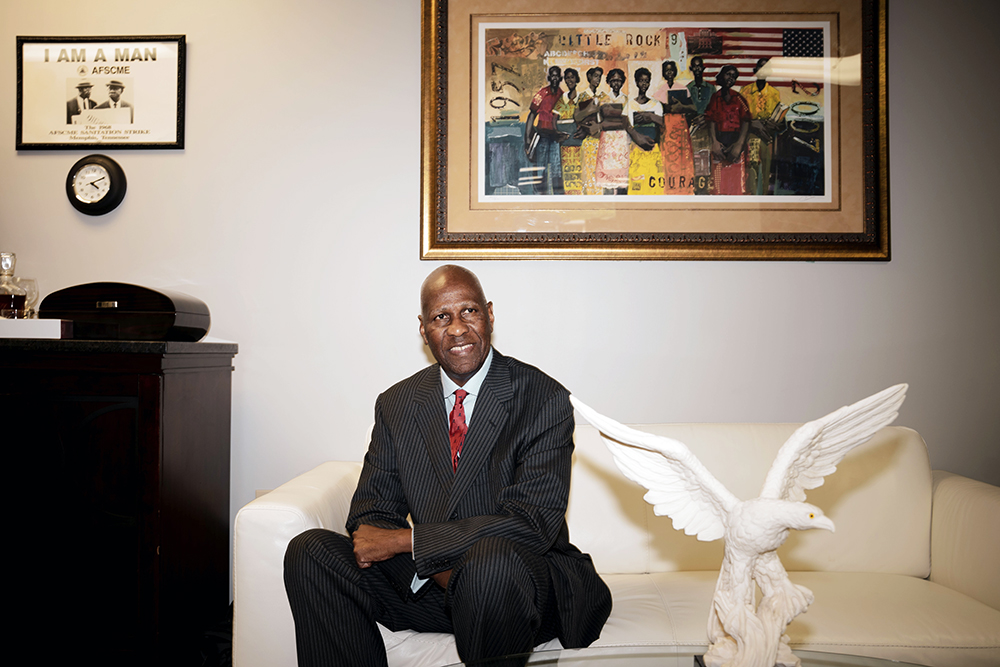
TURNER: We will have to make sure that the training and the leadership is appropriately in place to ensure this does not occur again. We need to get back to some of the community policing that we used to have when I was growing up in Whitehaven. … We had a relationship where, if we saw something, we said something, and we were not afraid to contact the authorities or law enforcement.
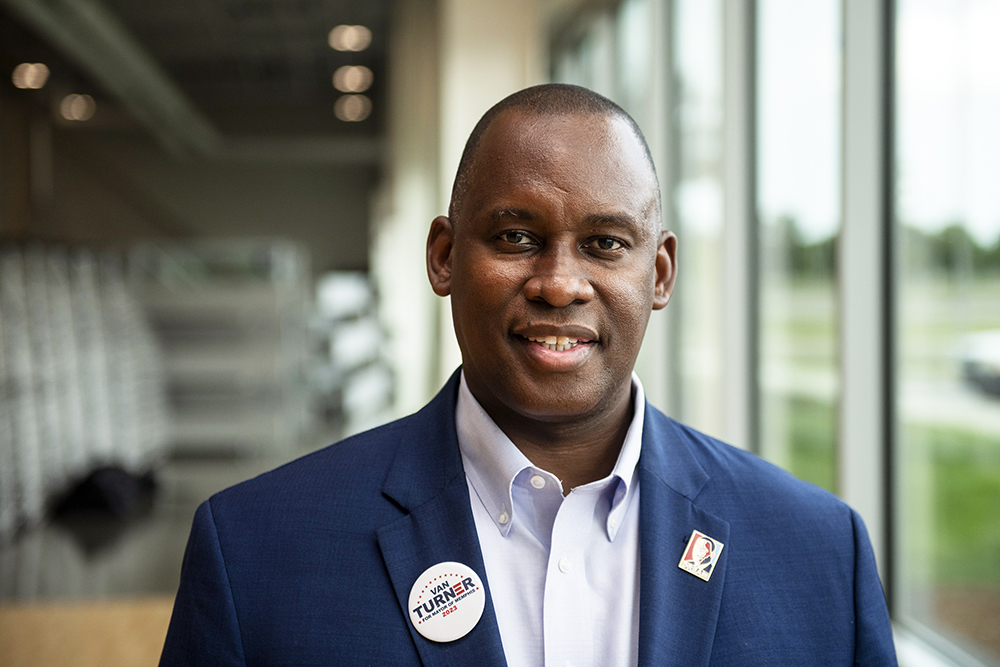
YOUNG: I think that the ordinances that were passed at City Council were a step in the right direction.
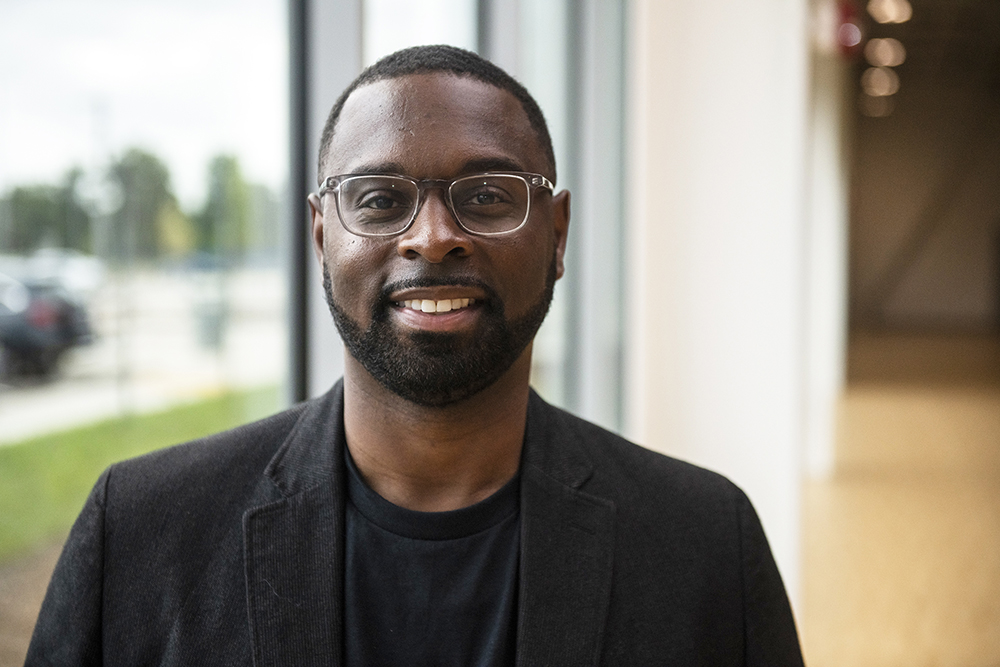
How would you describe Cerelyn “C.J.” Davis’ performance as police chief?
YOUNG: I think she’s done a good job. Obviously the incident with Tyre Nichols and the SCORPION unit and what appears to be a lack of oversight is something that she has to own. I think she has owned the mistakes and tried to do the things necessary to right the course, and that’s what leadership is about. … The visceral hate that we’re seeing in our community between residents and officers is something that only goes away when you build relationships, and the chief has to be the tip of the spear when it comes to making that happen.
BONNER: I’ve been asked many times, would I let her go if I was elected? I don’t think that’s fair. All city directors will be evaluated in my administration, and decisions will be made accordingly.
HERENTON: In all probability, she would not have been my choice. … From what I’ve read in the press and from what I’ve heard, there were some troubling issues in her past that I probably would have had to carefully weigh. If I could have identified an individual that had the competency level that I could trust with that leadership role, I would have selected from within.
TURNER: I thought she was good as far as being transparent on the release of the Tyre Nichols tape, and the reprimand and termination of those five officers. I think perhaps there’s some room for growth and accountability as it relates to the use of this tactical squad being used for just a mere traffic stop and not for something that it was organized to do: to take down maybe a drug operation, to go after the heavily armed bad guys that were going to have AR-15 rifles and shoot back. … To deploy a team like the team that was deployed in the death of Tyre Nichols was a failure of leadership. She should be held accountable for this even occurring.
MPD has about 1,900 officers, but says it needs 2,500. Do you agree 2,500 is the right number? If not, why not? If so, how would you look to help?
HERENTON: It’s going to be very difficult reaching that 2,500 goal because I will implement the highest standards. I think they’ve lowered the standards, which is troubling to me.
TURNER: I think 2,500 first responders is the right answer. I don’t know if they necessarily all have to be rank-and-file police officers. … We need a full complement of first responders, but I would suggest that perhaps 200 to 250 of those first responders should be comprised of specialty units and of specialty officers who can emphasize de-escalation, address mental health issues, address nonviolent, nonthreatening traffic stops, and address some of the domestic [violence] issues that we see. We really have to look at a comprehensive strategy to resolve crime more effectively in the community.
YOUNG: I agree. I don’t know that many people would disagree. … Just like we have training programs in high schools for the trades, we could introduce them to public safety careers. I think we obviously should continue to recruit from other cities. I want our officers to be the highest paid officers in the region. I want them to feel like the big dog: When you work in Memphis, you’re on the premier force. You’re going to have the most resources, you’re going to have the best equipment, and you’re going to have all the support that you need.
BONNER: It’s going to take two to three years to get to where the staffing levels need to be right now. We can’t wait that long. … How would I go about doing our desk-to-duty plan? It’s taking some officers out of precincts, out of the public information office, and getting those officers back out on the streets. We have officers doing tasks that civilians could be doing — for instance, fixing the SkyCop cameras.
Currently, nearly 40 percent of the city of Memphis’ budget goes to police. Should residents expect that, under your administration, that share would go up, down, or stay the same?
TURNER: My budget would likely be the same if you look at the whole spectrum of public safety. But I would like to increase the budget as it relates to prevention and investments in disinvested communities, disinvested youth, disinvested community centers. I think that’s where we really have to pour a robust allocation of our investments into because what we’re doing now is not working.
BONNER: Right now, even with the budget the way it is, our police need more cars. … So there’s some things in the police department that we need to fix. … I can’t say that the budget would increase, but it’s certainly nice to stay where it’s at.
YOUNG: You would see incremental increases as a result of increasing the number of staff, but I don’t see it going up significantly or going down significantly. In order to truly make our community safe, we have to find ways to make additional investments in public safety that’s not necessarily MPD.
MPD is currently under a civil rights investigation by the Department of Justice. How do you plan to ensure that the Memphis Police Department treats all citizens fairly?
HERENTON: It is clear to me that we need to fix the culture of MPD. I’m committed to doing that. I know exactly how to get the culture straightened out and to make sure that we have transparency. We’ll have accountability, and we’ll have constitutional policing.
TURNER: We go to each community — and I mean each and every community — and we listen. … We focus on training and we make sure that our most senior officers are being utilized more than what they’re being utilized now. There were no senior officers [there] the night of the murder of Tyre Nichols, that was a misstep and a problem. … Third, we have to focus on recruiting the right individuals with the correct temperament, the right mind to serve and protect.
What public safety solutions have you seen work in other cities that you would seek to implement here?
YOUNG: Pittsburgh re-trained their officers on how to engage on police stops. They talk about the weather and make small talk to disarm. They do that to reduce the likelihood of a negative encounter. In Omaha, they put together a coalition of people from different agencies focused on holistic public safety. They’re using data to identify the young people that need other interventions, and they have a host of programs that are able to engage those young people when they’ve been identified.
Some cities have tried to respond to mental health crises with first responders who aren’t police officers. Is that a solution you’re interested in exploring for Memphis?
HERENTON: A lot of individuals out here have all kinds of mental disabilities that the policemen, if they’re not well trained, don’t know how to recognize. You have to broaden the training because they are running into some mental health issues that need to be addressed.
TURNER: I think that there’s a role for individuals who have that type of expertise to be used by law enforcement and by fire. Oftentimes, EMTs are first on the scene and there are issues that they have to address which concern mental illness. And they’re not equipped to do so. … We need a unit that will do it, that will travel with fire and police and make sure that mental health issues don’t result in death.
YOUNG: I’ve talked to people that have done it. The challenge you find is that when you have individuals responding to an intense scene or somebody’s having a mental health episode, with the proliferation of guns in our community, you still need a trained officer. Can we send mental health workers out with officers? Yes. Sending them out alone? No, I don’t think that’s wise.
How do you plan to engage with young people, to help them avoid gangs and criminal activity?
BONNER: It’s all about intervention and prevention. At the sheriff’s office, we have a Crime Prevention Unit that offers over 40 different programs for our youth. … We can’t sit in the office and let parents or kids come to us. We’ve got to get out in the neighborhoods to find out what we can do to help these kids be successful.
TURNER: A kid that joins a gang is looking for love, looking for acceptance, looking for protection, looking for a community. They find that in the gang because it’s not at home, it’s not at church, it’s not on the football team. You really have to disrupt that pattern of the gangs preying on these vulnerable youth because once they get ahold of them, it’s hard for them to let go, and it’s hard for that young person to get out of it. So we have to step in before the gangs get to them and provide that positive community for them. That’s why [I like] the Boys & Girls Club; it’s a positive community.
Memphis always ranks poorly in the number of roadway deaths. How would you help make our streets safer without relying solely on increased MPD enforcement?
YOUNG: We need drivers to be informed that the public right of way isn’t just for cars. It’s for people. People walk, they bike, and they drive cars. We need public service announcements that remind people that they have to share the roads. We also should be exploring design solutions.
BONNER: You increase traffic enforcement, attention to red lights, and things like that. We’re gonna have to take a long hard look at traffic patterns.
HERENTON: I’ve never seen the level of reckless driving, inappropriate driving behavior, as I’m seeing on the expressway and streets. I’m so happy to see the increased level of Highway Patrol in our city. I will support that 100 percent — to increase the presence of highway patrolmen. They do it right.
As mayor, what is a measure you would take to reduce car break-ins and theft?
TURNER: Part of addressing the issues is to not only require a permit to have a gun on your person, but require permits to have guns in your cars. Many times, they’re looking for guns and other valuables. … The uptick occurred when we allowed guns in cars without a permit, and every law enforcement person in the state was against what the assembly was doing. … You disrupt how they make money off of what they’re doing. You use good detective work, good policing to break up the chop shops.
BONNER: My wife and I’ve raised two sons in this community. We were responsible for their actions and where they were, but these young people that are out there that are breaking in cars, we’ve got to get down to the root problem of that. That could be a food issue; it could be a homeless issue. We’ve got to find out what those issues are, and then change the trajectory of those kids.
YOUNG: I had an opportunity to sit on a town hall panel with NLE Choppa a few months ago, and there was a young person who said he liked stealing cars. I asked why. He said, “I’m bored and I need some money.” Those are things we should be solving for! We have to find ways to engage youth, have them earn money, and have fun.
HERENTON: There’s some brands of cars that are [more] susceptible to car thieves than others. In fact, I think I read that our current mayor was joining with some other mayors who’re talking about suing automakers who make cars so easy to be stolen.
As mayor, what is a measure you would take to help get guns off the street?
BONNER: Aggressive policing, first of all. We’ve got to hold people accountable. But also, we’ve got to change the mindset whereby we don’t have conflict resolution anymore in the schools or anywhere. I’m encouraged by what I’ve seen with the churches and pastors, community organizations that are willing to step up now and really get the message out as to how serious this is in our city. Because a lot of time our youth don’t understand the consequences of pulling the trigger on a weapon. So when you talk about trying to get those guns out of their hands, we’ve got to find a way to talk to them and get them to understand that violence is never the answer to anything, but also holding them, again, responsible and accountable for their actions.
HERENTON: I think that the legislative body in Tennessee is going to have to exercise more accountability and responsibility as we look at gun violence and gun control. So I’m for a lot of the reform measures, but within the powers of the executive branch, which the mayor is in. We just have to operate within the confines of the Constitution and state legislature.
TURNER: Obviously, talking to the Tennessee General Assembly won’t work. When the states have failed us in the past, we’ve turned to the federal government. As a civil rights attorney, that’s what I’ll do. I will support litigation to make sure that we at least put all the issues on the table. … I will seek an injunction in federal court, and I know what would likely happen. But the important thing is that we will create a record. We will have experts who will have testimony. We’ll get all those folks on the stand who’ve been ill-affected by gun violence. And then we’ll take that record to the U.S. Congress and we’ll ask for the United States Congress and for the president to give us relief. We’ve had a ban on assault weapons before. It can happen again. We should not give up on this issue.
YOUNG: Gun buyback programs — making sure people are turning those things in. And making sure we address illegal guns. When people commit crimes with those types of weapons, we should make sure there’s a higher penalty.
Expanded interviews with each candidate can be found here:
Floyd Bonner
Willie Herenton
Van Turner
Paul Young
